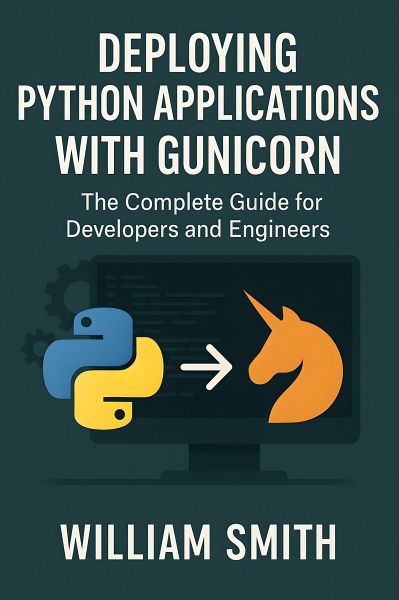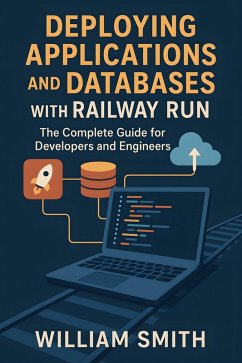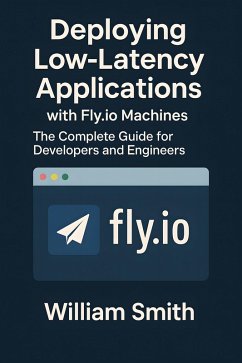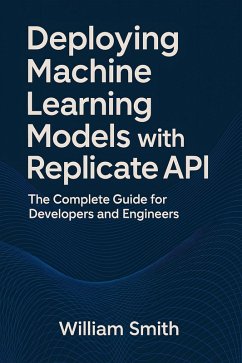
Deploying Python Applications with Gunicorn (eBook, ePUB)
The Complete Guide for Developers and Engineers
Sofort per Download lieferbar
8,48 €
inkl. MwSt.

PAYBACK Punkte
0 °P sammeln!
"Deploying Python Applications with Gunicorn" "Deploying Python Applications with Gunicorn" is an authoritative and comprehensive guide for developers, architects, and operations professionals seeking to master the deployment of robust Python web applications. The book begins by exploring the foundational concepts of the Python web ecosystem, including a deep dive into the WSGI standard, the role and integration of leading frameworks such as Django, Flask, and FastAPI, and a comparative analysis of WSGI, ASGI, and emerging protocols. Readers will gain clarity on where Gunicorn fits into the la...
"Deploying Python Applications with Gunicorn" "Deploying Python Applications with Gunicorn" is an authoritative and comprehensive guide for developers, architects, and operations professionals seeking to master the deployment of robust Python web applications. The book begins by exploring the foundational concepts of the Python web ecosystem, including a deep dive into the WSGI standard, the role and integration of leading frameworks such as Django, Flask, and FastAPI, and a comparative analysis of WSGI, ASGI, and emerging protocols. Readers will gain clarity on where Gunicorn fits into the landscape, understanding its architectural philosophy and practical significance amidst evolving deployment patterns like monolithic and microservices approaches. Building upon this solid foundation, the book offers an extensive examination of Gunicorn's architecture, configuration, and operationalization. Through nuanced discussions of worker models, concurrency, customization via hooks, and real-world optimization strategies, readers will acquire advanced skills for tuning Gunicorn for performance, reliability, and efficiency. Attention is given to security hardening, compliance, and integrating Gunicorn into modern DevOps pipelines, whether running on bare metal, in Docker containers, or orchestrated by Kubernetes. In addition, the book provides essential insights into best practices for observability-encompassing logging, metrics, tracing, and production debugging-ensuring high availability and rapid incident response in demanding environments. The final sections of the book illustrate proven deployment patterns and industry case studies, address bottlenecks in large-scale systems, and look ahead to the future of Python web deployment with emerging trends such as ASGI, serverless, and edge computing. With its structured, detail-oriented approach, "Deploying Python Applications with Gunicorn" empowers professionals to confidently design, secure, optimize, and scale Python services in any environment, laying the groundwork for resilient, maintainable, and next-generation web applications.
Dieser Download kann aus rechtlichen Gründen nur mit Rechnungsadresse in A, B, BG, CY, CZ, D, DK, EW, E, FIN, F, GR, H, IRL, I, LT, L, LR, M, NL, PL, P, R, S, SLO, SK ausgeliefert werden.













